Stop Making These. Just Stop. Yes, You With The Camera – I’m Talking to You.
My friends make fun of me for being such a hardass about this, but it’s one of those scourges which refuses to go away. If I learn that the main character in a movie is a struggling actor, director, screenwriter, etc. – I just tune out. I don’t get it, the fascination with telling this story over and over. In a world with bajillions of untold stories out there waiting to find a good home, why make movies and TV shows about people who make movies and TV shows? Are we that fascinating?
No, we are not.
My Pet Peeve: The Snake Eats Its Tale
Some may ask if I’m talking about things like HBO’s hit “Entourage” or NBC’s exercise in programming-a-show-until-people-like-it known as “30 Rock.” Yes I am. I understand the fascination with the highest echelons of Hollywoodland, but I cannot bring myself to watch a fictionalized TV show about it. I don’t care how great Jeremy Piven or Alec Baldwin are, this work results from intellectual laziness and then that laziness spawns all kinds of labor intensive hours for writers, directors, actors, etc. Once it’s all over and people have watched it and walked away with a set of (perhaps reasonable) prejudices about the way it works in spoiled-ass Hollywood, then what? Who cares? What’s the takeaway?
Big-budget movie naval-gazing surprises me less than when it happens on an indie level, when these overdone projects are the freshman efforts of struggling artists. I just want to shake them and say, “you got your chance to make a movie and you chose to make it about YOURSELF? YOURSELF?!I mean, not metaphorically, not allegorically, but just YOURSELF?”
Anyone who’s ever tried to make a movie has learned how much struggle, drama, perseverance, and pluck it takes to get from the initial idea to the final product, but here’s the problem – these are inevitably straw-man movies where the filmmaker is the noble hero and everyone else is a giant jackass trying to cockblock their perfect vision. And what is that vision? Well, it’s about a young screenwriter/actor/director who…
Stop. Just stop.
The Exceptions
There are, of course, some movies about movies about movies about movies that work. Why? Because they’re not, in any way, about making movies. Also, they’re often period pieces.
-
Singin’ in the Rain (1952)
It’s interesting to note that this classic movie musical, one of the most enduring of its time, was in fact a period piece dealing with the transition from silent to sound films. And it’s more of a comment on being stuck in one’s ways as the world has moved on than a comment about movies – although that commentary is in there too.
(Suggested in his response, below, by Mike Monello)
-
Ed Wood (1994)
“Ed Wood” may chronicle the life of an infamous filmmaker (played to perfection by Johnny Depp), but it’s not really a movie about making movies. It’s a movie about self-delusion. It’s a movie about how we all have some pursuit that we are truly excited about, and we’re fooling ourselves to think we’re any good at it. After all it’s a biopic about the man considered to be the worst filmmaker of all time. Some deference must be paid. But mostly, it’s about a misfit trying to fit in and find his way through life as he collects weirdos along the way and self-actualizes by making the movie considered by some to be THE WORST EVER MADE. In fairness, the remake of “The Wicker Man” wasn’t out yet.
-
Barton Fink (1991)
The Coen Brothers‘ fourth feature “Barton Fink” is not a movie about movies, or if it is, it’s one of the more surreal takes on this concpet. The movie concerns a pretentious New York playwright (John Tuturro) in the 1940’s who sells out to Hollywood only to find himself caught between an inscrutably authoritarian studio boss, a washed-up famous novelist, and a door-to-door salesman (a creeptastic John Goodman) who plays the man of humble means but has more power than anyone else Fink knows. The movie is about the lies we tell ourselves about who we are, and how deadly clinging to that myth ultimately can be.
-
The Player (1992)
Simply put, Robert Altman‘s bilious hate letter to Hollywood is not a movie about movies. It’s a movie about politics, power, and how wielding power can rob someone of their soul. It happens to take place in Hollywood and lots of stars show up here and there, and industry veteran Altman manages to dispense with a lot of his thoughts about the business in which he spent his life toiling – but it’s reductive to say that it’s a movie about making movies. If anything, it’s a movie about someone (in this case, Tim Robbins as studio exec Griffin Mill) literally getting away with murder in plain sight.
-
Boogie Nights (1997)
PT Anderson‘s second feature is whip smart, brilliant in its writing, acting, and directing, and it’s not really about the film industry as such. It’s about the porn industry, specifically the porn industry in LA’s San Fernando Valley in the 1970’s and 1980’s. It can be said to be allegorically about the “real” film industry (in the same way that Spielberg‘s “Close Encounters of the Third Kind” could be said to be about the Darwinian nature of creative struggle and realizing one’s vision), but the actual filmmaking portions of this movie don’t dress the process up one bit.
The Major Violaters
Before I even get into this, let me say that all the people who’ve made the following films (and TV show) have my sincere admiration for having gotten something made at all. Pretty much everyone on this list has real writing/directing/acting talent and my only point is that it would have been better had someone deep inside their creative circle vetoed the basic concept before it got out the door. I’m not trying to offend or say I’m a better filmmaker than anyone on this list – I’m trying to discourage this behavior in the future.
Note: There is no physical way for this list to be complete, and it’s utterly subjective. These films typify my personal bias against this genre. You probably don’t agree with me, but if I can convince just one would-be filmmaker to not make another one of these films, I’ve done my job.
-
The Wizard of Speed and Time (1988)
Mike “The Wizard” Jittlov plays himself – a visionary visual effects wizard and stop-motion maestro who comes to LA to spread his genius around the town, only to have his dreams crushed repeatedly by the evil machine that was the studio system in the late 1980’s. With pure imagination and lots of forced whimsy he makes his perfect film, against the odds, and really shows ’em.
-
The Big Picture (1989)
Before he specialized in mock-docs that crapped on those with creative aspirations, Christopher Guest‘s first movie chronicles a visionary filmmaker (Kevin Bacon) who graduates from a prominent film school in LA, only to be cast into a maelstrom of executives, agents, wannabe starlets, etc. He learns that the only way to “make it” is to step on everything he stands for and to hurt all his friends. Then he regains his humanity which allows him to makes his perfect film, against the odds, and really show ’em.
-
Living in Oblivion (1995)
Dream cast Steve Buscemi, Catherine Keener, Dermot Mulroney, and Peter Dinklidge all star in this total inside-baseball account of making a pretentious indie film, a command performance for only the nerdiest fans of “Anatomy of a Scene.” Tom DeCillo has made a career of making films about the film industry, but this is by far his most egregious excursion up his own “oblivion” if you will. We don’t know if Buscemi’s character gets to make his great film and really show ’em, but perhaps DeCillo is saving that for the sequel.
-
Action (1999)
Ever since his entrancing impression of Christopher Walken on SNL put him on the map, Jay Mohr has been trying to find the perfect niche for his acting talents. In 1999, he presaged Jeremy Piven‘s small-screen Ari Gold portraying a dirtbag producer Peter Dragon. His sidekick, ex-child star turned prostitute Wendy Ward (Illeana Douglas), helps him wend his way through the sewers of the Hollywood cliché machine. Wait a minute… “Peter” and “Wendy?” Oh, I get it now.
-
Star Maps (1997)
Director Miguel Arteta‘s humble first feature tries to show us the “dark side of Hollywood” through the eyes of a struggling Mexican would-be actor – but comes across as a prurient exercise in exposing exploitation while also being exploitation. As it wends its way toward the inevitable scene on a film set, I couldn’t help but wonder if that was how Arteta’s own film set was run, and if the fictional set reflected what he saw as how the “big boys” ran things. Arteta went on to make many far-better films (“Chuck and Buck,” “The Good Girl“) as well as being a phenomenal TV director, but I can’t help but scratch my head knowing that his freshman effort played Sundance and tore up the festival circuit. And played in movie theaters for paying customers.
Woody Allen has made a career out of putting his head up his own ass in the most amusing ways (or by defending Roman Polanski… But I digress), but this plodding, unfunny story of a film director suffering from psychosomatic blindness feels, again, like another indictment of the way people in the movie business are coddled. Who cares? It joins other Allen would-be-memoir dreck like “Stardust Memories” and “Celebrity” (not to be confused with his better inside-showbiz period pieces “Bullets over Broadway,” “The Purple Rose of Cairo, and “Radio Days“) on my permanent “do-not-watch” list.
(Also suggested in his response, below, by Mike Monello)
-
Entropy (1999)
A filmmaker is pitted against the evil studio system in Phil Joanou‘s most masturbatory effort to date. This saddened me, as I’ve always been a booster of Joanou’s – but perhaps this film typified what I meant in a previous blog. Supposedly “Entropy” fictionalizes the making of Joanou’s earlier film, “Heaven’s Prisoners.” His dreams are crushed by greedy studio jerkoffs, he falls in love with a supermodel, jetsets around the world, gets advice from Bono, and basically makes it impossible for me to care about anything he does.
-
The Muse (1999)
Albert Brooks writes, directs, and stars in this namedropping starfuck-a-thon about a schlubby aging screenwriter with a waning career who’s slick friend (Jeff Bridges) suggests he get an actual Greek “Muse” (Sharon Stone) to inspire him back onto the A-list. In order for a movie with this basic concept to really work, one would think that its writing would be snappy and brilliant – as if the muse herself had inspired the once-brilliant Brooks. But no dice here, as lugubrious pacing and forced old-guy humor sink faster than Brooks’ Tomatometer.
-
Wes Craven’s New Nightmare (1994)
I love me some Wes Craven, I really do. But his triumphant return to the already over-harvested “Nightmare on Elm Street” franchise starred himself, original “Nightmare” heroine Heather Langenkamp, and the original “Freddy” himself Robert Englund as themselves, dealing with a demon who had chosen Freddy as his avatar in our world. I can fully understand the attraction to this approach which I would call a “noble failure,” after all Freddy does move between worlds, does he not?
(suggested via Instant Message by Andrew Bargeron. Buy his designs!)
Money People: Stop Wasting Your Money
When I first moved to LA in 1999, I had a short film called “The Meeting” which I’d just directed under my arm and I was ready to take the town by storm. As luck would have it, the film got into the Los Angeles Independent Film Festival (LAIFF), now the LAFF. Playing that festival gave me a free pass to see as many films as I wanted to, for free, at the festival – so I did. And it was there that I saw “Entropy” (above), which kicked off a festival of films about people who want to make films. I felt like I was being punked. There was even one movie that was about the dark underbelly of Los Angeles but not about the movie business, but it still had to have an obligatory scene in it about one of the characters writing a screenplay about her experiences and a bald, fat, cigar-chomping Hollywood agent/manager/lawyer/exec pissing all over it. Yes, we understand. It’s hard, and people don’t get you.
Enough!
I don’t remember the names of any of these films, and with good reason. Nobody remembers any of these films. They’re all completely forgettable and forgotten. They’re vanity projects of the lowest order. So we get it, we really do. Your life is hard. Now stop it.
Note: two weeks after publishing this post, the movie below was released in theaters.

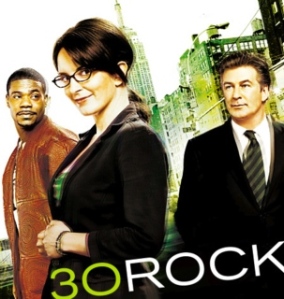
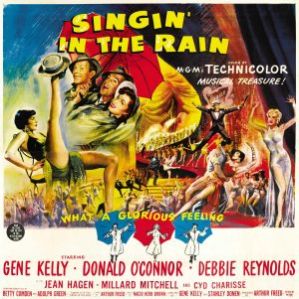

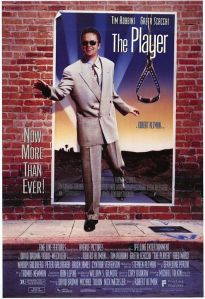




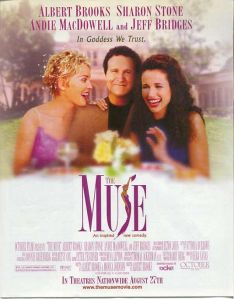
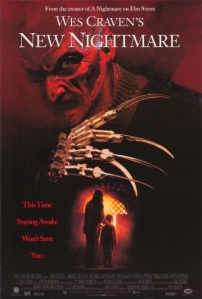
You had me until The Wizard of Speed and Time, but only because the heart of that goofy movie is in the right place, and the plot is actually a mirror of what was happening behind the scenes, with a dirty producer stealing the movie away from Mike and ripping off of all profits, stealing the copyright of the film, etc.
And while I totally agree with your main point, I would expand it even larger and say “Quit making navel gazing movies about inconsequential bullshit.” That means no more crappy movies about white urban dwellers and their struggles with relationships (I’m looking at you Greenberg and Please Give), no more movies about the struggle to make art of any kind, unless it is a biography of an artist who had enormous impact, no more movies about quirky-hip people, oh the list goes on and on and on…
That being said, for movies about movies I would put these in the Major Violators category:
Be Kind, Rewind
The Big Picture
For Your Consideration
Tropic Thunder
Celebrity
Full Frontal
Hollywood Ending
The Last Action Hero
Stardust Memories
State and Main
Jay and Silent Bob Strike Back
And these movies in The Exceptions:
Adaptation
Sunset Boulevard
The Stuntman
Cinema Paradiso
David Holtzman’s Diary
The Purple Rose of Cairo
Day for Night
Hollywood Shuffle
Silent Movie
Man Bites Dog
Sullivan’s Travels
Swimming with Sharks
Peeping Tom
Singin’ in the Rain
8 1/2
Lost in La Mancha
The Truman Show
Bowfinger
Hmmmm, now that I think about it, there HAVE been some pretty great movies about movies. 😉
Great response, Mike, and some great examples of both extremes. I really think if you look at your lists, most of the “good” ones are about something else. “Man Bites Dog” is a straight-up mock-doc. I wouldn’t really include mocumentaries, as they are de facto about filmmaking (same with David Holtzman’s Diary and Lost in La Mancha – which is an actual documentary). Perhaps “And God Spoke…” a mocumentary about people making a film should be on one of those lists as well.
And obviously “Singin’ in the Rain” is in a category all by itself. Personally, I wouldn’t miss “Bowfinger” or “Hollywood Shuffle.”
I stand by my verdict on “The Wizard of Speed and Time,” as it really has nothing to say about anything but the actual world of filmmaking.
Ah, Swimming With Sharks is up there, cool. Truman Show about movies? Hmmmmmm. More like a TV show. I love Living in Oblivion. Sign’in in the Rain is a great film, made at a time when movies were so BIG and GRANDIOSE. At a time when people couldn’t get the TMZ-like insight they get today BTS of actors, movies, etc.
[…] This post was mentioned on Twitter by Scott Weinberg, Ben Rock and Ben Rock, Kelvin. Kelvin said: Movies About Movies About Movies About Movies « Neptune Salad: Mike “The Wizard” Jittlov plays himself – a visio… http://bit.ly/9xpvXM […]
I’m sure that each of the filmmakers from the bad list would argue that their films are about something else. The Big Picture is about losing the innocence of youth and selling out your principles to the real world.
I would agree that movies about movies are over-represented in movies, and my reaction to it is exactly the same as yours, but filmmakers make these movies for the same reason former lawyer David E. Kelly’s works are always about lawyers, because that’s the world he knows. I actually DON’T agree with that approach to writing, just like I find the perennial cliche “write what you know” to be of dubious value.
Generally speaking, I apply here the philosophy I apply to remakes and sequels or any other category of film. They’re bad, unless they’re good. Most are going to bad because most movies are bad. A few are going to be good, no matter what kind of movie it is.
True, all true. I just think you can cut the head off of the shit-factor by choosing not to make something that’s cliched in the first place. I mean, there’s just an inherent risk of crappiness when we start down a tired, lame path like this in the first place. In order to make this good, you have to really find a new story in this world. Wouldn’t it be better to find a fresh story from a non-cliched world?
[…] I’ve said for years that there are few things worse on the whole than films about filmmakers and filmmaking. […]
It’s so weird that you should post this now! I’m in the middle of writing a television pilot about a guy writing a novel about a guy writing a screenplay about a guy who writes a blog about his dislike for movies about movies about movies about movies.
I’ve finally hit the big time!
To quote Homer Simpson, “Your ideas are intriguing, and I would like to subscribe to your newsletter.”
I’ve been on the anti-movies-about-movies bandwagon since I told my students in 1996 that one of my rules for their class projects was “no films about films.”
That said, I agree with Tom when he says “most movies are bad. A few are going to be good, no matter what kind of movie it is.” I would add that some, like “The Player,” will be absolutely f-ing brilliant, despite being set in the world of moviemaking.
I’d like to add a TV show to your exceptions (since you included “Action” on your major violators list) which is “The Larry Sanders Show.”
It’s still one of my favorite TV shows of all time, but what makes it great isn’t the reflexiveness of the plot, but rather the vividness of the characters and the insanely great comic timing of the cast. The fact that Larry got to act out his neuroses in the context of a man-crush with David Duchovny or going to bed with Ellen DeGeneres, rather than in some other office setting, was actually quite satisfying. But I’m not sure it was central to the show’s appeal. At least for me.
And another offender? “Tristam Shandy.” A real waste of Steve Coogan, IMHO.
So thanks very much for a really strong post!
I liked “Larry Sanders” as well, but its progeny “30 Rock” makes my eyes bleed. I would also put “Tropic Thunder” on this list, although I’m caught between liking and hating it. I got a lot of laughs out of it, but I can’t help but think that the same quality of writing and acting by everyone involved (including Coogan) could have been infinitely better if the premise were more compelling.
I love 30 Rock, but I don’t see that as a show about making a show, it’s half a satire on big business and half a modern Mary Tyler Moore. Their savage ripping of the GE/NBC ownership and now the Comcast/NBC merger is pure gold.
And that reminds me, Mary Tyler Moore should be on the exceptions list. I think Tropic Thunder, on the other hand, is total crap. another waste of Steve Coogan, to take from David.
I think my hatred for “30 Rock” stems from the fact that neither Tina Fey nor Tracey Morgan can act (even in the context of broad satire) so if they were on this show or remaking “Pulp Fiction” I would hate their screen presence on sight.
But I do think “30 Rock” is intellectually lazy from its basic concept. There is a better satire of big-business to be had with this group of people, and I might have actually tuned into that one. Like “Extras.” Like “The Comeback.” Smart people thinking stupid, then spending a lot of money to make it happen.